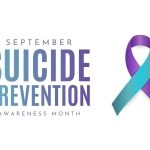What You Need to Know About the Listeria Outbreak
Recently, health officials have raised concerns about a large Listeria outbreak connected to deli meats, marking the most significant outbreak since 2011. The outbreak has been linked to products distributed from a plant with unsanitary conditions, and while it may not directly affect all Arizona residents, it’s important to know the risks, especially for certain vulnerable groups.
What is Listeria?
Listeria is a type of bacteria that can cause an illness called listeriosis. This infection is typically caused by eating contaminated foods like deli meats, cheeses, and other ready-to-eat items. Deli meats, in particular, are more prone to Listeria contamination because the bacteria can thrive in cold temperatures and spread easily. The environment in which deli meats are processed, often involving high moisture and slicing equipment, provides the perfect conditions for bacteria to grow.
In addition to deli meats, Listeria can also be found in raw fruits and vegetables, which can become contaminated through soil, water, or unsanitary handling.
While many healthy people might not experience symptoms or only have mild issues such as diarrhea or fever, others can become seriously ill.
Who Should Be Cautious?
Certain groups are more vulnerable to severe effects of listeriosis, including:
- Pregnant women: Listeria can lead to miscarriage, stillbirth, or serious infections in newborns.
- Older adults: People over 65 may experience more severe symptoms, including blood infections and meningitis.
- People with weakened immune systems: Those undergoing treatments like chemotherapy or who have chronic conditions should be cautious, as listeriosis can be life-threatening for them.
What Are the Symptoms?
Symptoms of listeriosis typically appear 1-4 weeks after eating contaminated food but may start as early as the same day or as late as 70 days after. Common signs include:
- Fever
- Muscle aches
- Nausea or diarrhea
- In more severe cases, especially in high-risk groups, symptoms can worsen to include confusion, loss of balance, and even convulsions.
How to Stay Safe
Though Arizona has been linked to this outbreak, not all products are affected. However, it’s important to:
- Avoid deli meats and cheeses unless they are thoroughly cooked.
- Refrigerate perishable items within two hours.
- Follow proper food safety guidelines, such as keeping your refrigerator clean and setting it to 40°F or below.
What to Do If You’re Concerned
If you or a loved one is at higher risk and starts experiencing symptoms after eating deli meats or processed foods, it’s important to seek medical care. Early treatment with antibiotics can help prevent more serious complications. For any concerns, don’t hesitate to contact your NOAH healthcare provider. Staying informed and following food safety practices can greatly reduce your risk of listeriosis.




